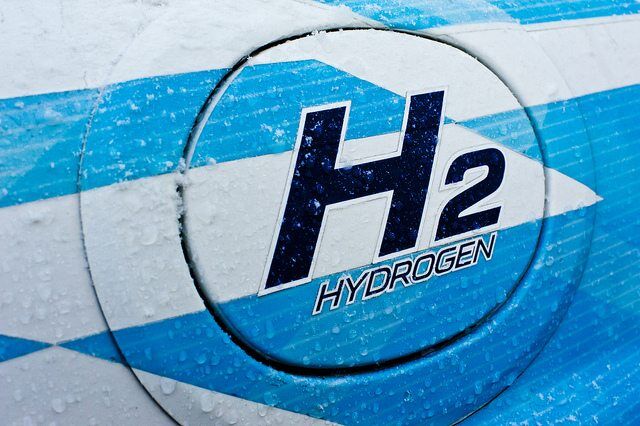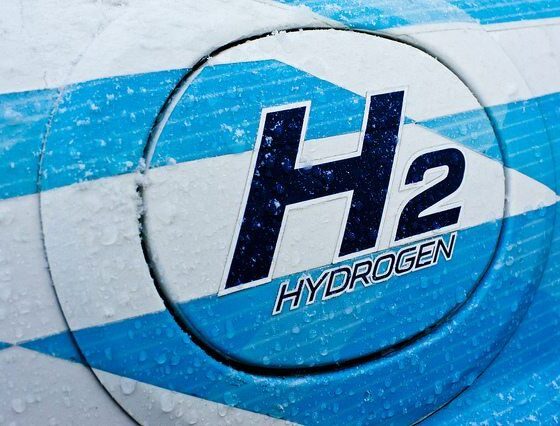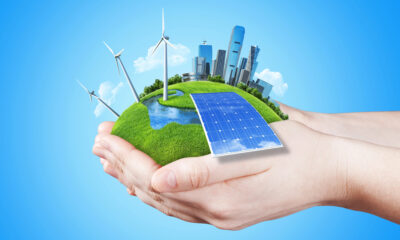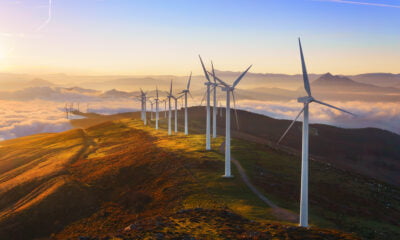

Energy
Worldwide ‘Hydrogen Revolution’ Supported By Zero-Emission Infrastructure Plan
A step toward hydrogen energy becoming the world’s future power infrastructure enabler has been made in the ground-breaking agreement for the Asian Games in 2018 to be supported by a number of zero-carbon energy developments.
The South Sumatran government in Indonesia, has agreed a deal with IMS ECUBES, to provide a comprehensive range of zero-carbon energy infrastructure to underpin the Asian Games in 2018.
The announcement is made against the backdrop of the rapid progress being made with the cross border FutureFlow project, in Europe, which has already identified demand-response and distributed generation capable of providing high quality system services for TSOs, this includes also high energy efficiency hydrogen fuel cell-based technologies, across the four countries involved in the project, Austria, Hungary, Romania and Slovenia.
The announcement by His Excellency, Mr Alex Noerdin, Governor of South Sumatra at the European Utility Week Expo in Barcelona, will see IMS ECUBES provide hydrogen-enabled power generation, demand- and supply-side management and hydrogen fuel cell enabled zero emission mobility.
Making the announcement, His Excellency, Mr. Alex Noerdin, Governor of South Sumatra in Indonesia, said:
“Despite being a region rich in coal, oil and gas resources, my government has a resolute belief in the need for us to take steps to secure a sustainable, green future. Accordingly, we’ve been searching for many years for an economically feasible solution to deliver green and affordable power.
“That detailed, painstaking analysis has led us to seek a hydrogen-based solution and to rely on the expertise and capabilities of IMS ECUBES. We are confident that in addition to the grid power and zero emission mobility solutions that IMS ECUBES will deliver for those involved in the Asian Games, there will be ongoing benefits for the residents of South Sumatra as a key legacy of this decision.
“We are monitoring exiting developments in Europe, particularly the FutureFlow project, whose cross-border supply balancing and redistribution ambitions I believe may provide a model for nations across our region.
David Gerbec, Power Market Services Expert at ELES, the Slovenian electricity Transmission System Operator leading the FutureFlow project, said:
“There is an accelerating shift toward both electricity generation from renewable sources and more efficient, demand-led power provision by electricity transmission system operators. The resulting steady phasing-out of conventional, fossil fuel power plants is already fostering exciting innovation across the energy generation and supply ecosystem, both in terms of energy supply balancing and re-dispatching and the development of new energy markets. The European-funded, €13m four-year FutureFlow pilot project, led by ELES is at the heart of that wave of innovation, both in Europe and further afield.
Dr Ben Todd, Chief Technical Officer at IMS ECUBES said:
“Important progress is being made in decarbonising power generation through the move to lower carbon fossil fuels, e.g. from coal to natural gas, on the path to fully renewable sources. The intermittent nature of renewable energy supply presents multiple technological challenges however. Hydrogen fuel cell-based technologies, particularly when applied to grid-balancing and power redistribution, offer multiple benefits and far lower carbon emissions than current alternatives.
“The approaches being tested at scale both in the FutureFlow pilot project in Europe and the ambitious deployment in South Sumatra will provide important reference cases for the accelerating roll-out of MW-scale hydrogen enabled power grid solutions.”
Aleksander Gerbec, President of IMS ECUBES said:
“This announcement is an early realisation of the growing interest in the unique capacity for hydrogen fuel cell technology to provide rapid-response energy demand balancing. This is a critical benefit, as governments increasingly move away from fossil fuel- power generation and toward a decarbonised power mix – including natural gas and hydrogen as key enablers for both power generation and zero emission mobility. Moreover, it demonstrates the critical role that far-sighted, committed leadership plays in ensuring that energy generation and supply challenges are tackled head-on and as early as possible.
“This approach, already underway in Europe, through the FutureFlow project, led by ELES, will create new opportunities to develop the power generation and supply ecosystem, as well as developing completely new business models and value chains. In short, the wider South Sumatran economy will benefit from the committed leadership decision made by its government.”
































